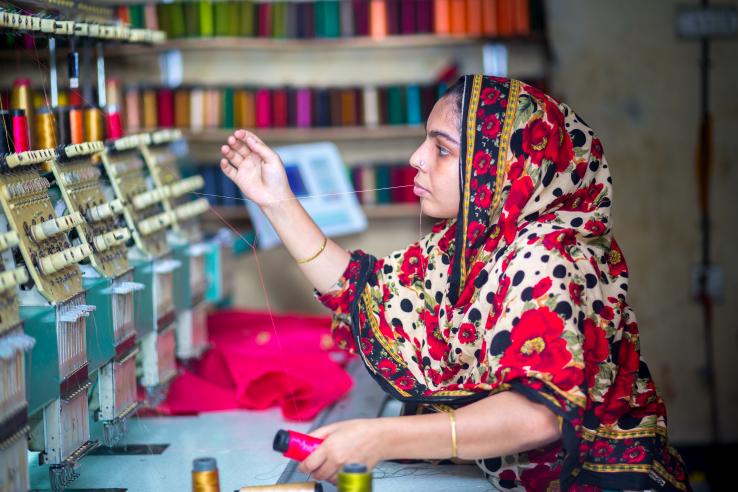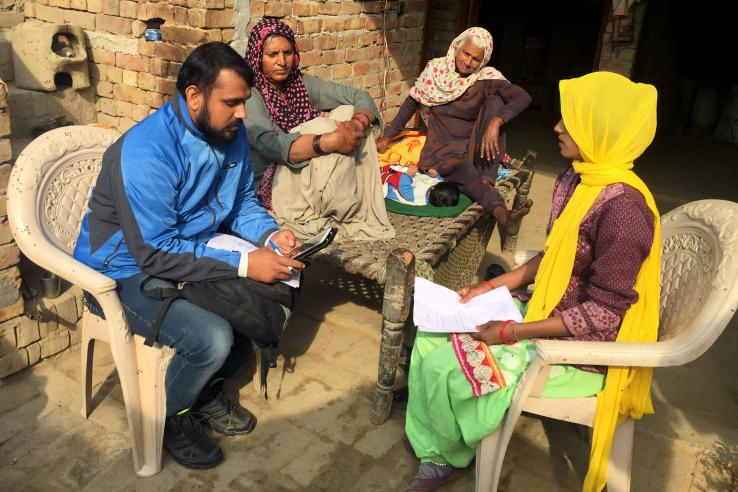Displaying 3601 - 3615 of 8165
Evaluation
Researchers are partnering with the German Society for International Cooperation (GIZ) to identify barriers to a wider market for consulting and training in Bangladesh by offering high-quality manufacturing training services at randomly-assigned price points and covering different topics. They find that factories and managers are unwilling to take-up high-quality training services more as a result of high production pressures than as a result of high prices, and that there is higher demand for training to improve production planning and quality than for training on human or social resources.
Project
A package of interventions combining well-connected local immunization ambassadors, targeted reminders, and incentives to caregivers increased measles vaccination by approximately 55 percent in an at-scale study in Haryana, India. A version using only reminders and ambassadors was less expensive per...
Person
Elise is a Professor at Paris Dauphine University. Her research focuses on policies addressing the lack of human capital (health, education, and social capital) in developing countries and France, with a special interest in understanding the psychological barriers to individual progression.
Initiative Resource
Initiative projects and documents
Initiative Resource
Initiative projects and documents
Initiative Resource
Initiative projects and documents
Initiative Resource
Initiative projects and documents
Initiative Resource
Initiative projects and documents
Initiative Resource
Initiative projects and documents
Initiative Resource
Initiative projects and documents
Event
Join J-PAL Southeast Asia’s Inclusive Financial Innovation Initiative for a learning collaborative webinar to share valuable findings from a randomized evaluation conducted by IFII invited researchers on increasing the take-up and usage of branchless banking products. This webinar will feature a...
Person
Vibha Mehta is a Senior Research Manager at J-PAL South Asia where she works on the Bhubaneswar Urban Sanitation project. Vibha holds a Master of Public Policy from the University of Michigan, and a Master of Economics from St. Joseph’s College of Arts and Science. In the past, she has taught for...
Initiative Resource
Initiative projects and documents
Person
Brindha is a Policy Associate at J-PAL Global where she works on the Agriculture Sector, supporting the Agricultural Technology Adoption Initiative (ATAI) and the Digital Agricultural Innovations and Services Initiative (DAISI).
Person




